Access result later in pipe
I am trying to create functions which print the number of rows excluded in a dataset at each step in a pipe.
Something like this:
iris %>%
function_which_save_nrows_and_return_the_data() %>%
filter(exclude some rows) %>%
function_which_prints_difference_in_rows_before_after_exlusion_and_returns_data %>%
function_which_save_nrows_and_return_the_data() %>%
function_which_prints_difference_in_rows_before_after_exlusion_and_returns_data ...etc
These are the functions I have attempted:
n_before = function(x) {assign("rows", nrow(x), .GlobalEnv); return(x)}
n_excluded = function(x) {
print(rows - nrow(x))
return(x)
}
This successfully saves the object rows:
But if I add two more links, the object is NOT saved:
So how can I create and access the rows-object later the pipe?


